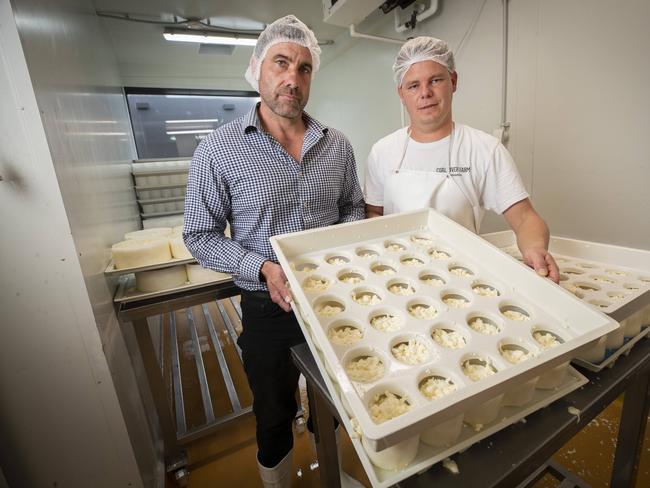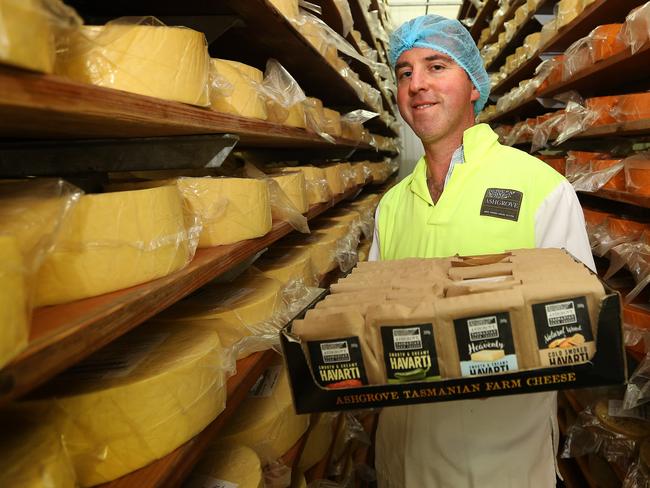Cheesemakers anxious over move to bar them from calling products parmesan or feta
Some of Tasmania’s most beloved cheese producers could be forced to throw out large chunks of their inventory as a global war rages. SEE WHY

Tasmania
Don't miss out on the headlines from Tasmania. Followed categories will be added to My News.
Tasmanian cheesemakers are anxiously awaiting a decision on whether they can continue to label their products as parmesan and feta, as trade talks between Australia and the European Union intensify this week.
Trade officials are locked in a 15th round of negotiations, endeavouring to hash out a new free trade agreement between Canberra and Brussels.
The EU is pushing for protections around so-called geographic indicators of distinctly European products, including parmesan, feta and prosecco.
Such a condition would have significant commercial implications for Australia’s cheesemakers.
Coal River Farm founder and managing director, Daniel Leesong, said his business made a range of different types of feta, such as its herbal garlic marinated variety.

“Our fetas are one of our most popular cheeses,” he said. “It’s got a cult-like following for those that love it.”
According to Mr Leesong, the Cambridge farm would have to “throw out” packaging if it was forced to rename its feta products.
“But the broader issue is probably that you have to re-educate the public because [feta] is commonly known to them and it’s immediately recognised,” he said.
Mr Leesong urged the Australian government to push back against the EU’s demands related to naming protections.
“It’s something that would have an impact on sales,” he said.
Richard Bennett, the managing director of Ashgrove Cheese based at Elizabeth Town, said his business faced the daunting prospect of replacing all the labels for its parmesan and feta products, which he noted would “come at a fair cost”.
He agreed with Mr Leesong that the biggest headache would be educating customers about the changes.
“It becomes challenging if you’ve got to change the name of feta to ‘white acidic salad cheese’,” Mr Bennett said.

A spokesman for the Australian Dairy Products Federation, the peak policy body representing the commercial, post-farmgate element of the Australian dairy industry, said producers were at risk of losing the names of more than 50 varieties of cheeses.
“Dairy Australia analysis indicates that the potential direct cost to Australian dairy manufacturers – due to lost sales and increased marketing costs – from the strict enforcement of dairy [geographic indicators] under a [free trade agreement] could range from $77-95m per annum in the early years of operation,” he said.
“Not only will the livelihood of Australian farmers be adversely impacted but the economies of regional communities where many dairy product manufacturing facilities are located could be impacted for many years to come with up to 1000 jobs across Australia estimated to be lost as a result of unjustified … protections.”
Trade Minister Don Farrell was contacted for comment.





